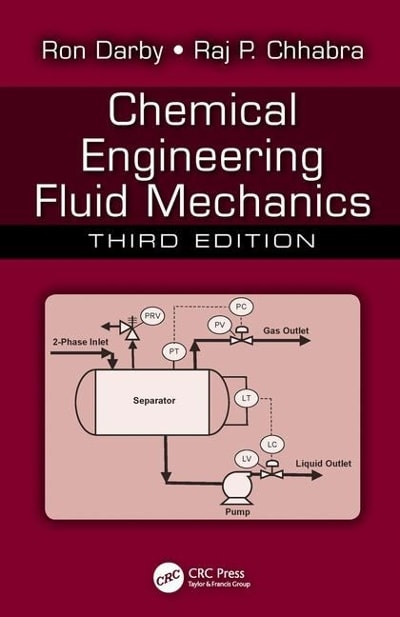The pressure developed by a centrifugal pump for Newtonian liquids that are not highly viscous depends upon
Question:
The pressure developed by a centrifugal pump for Newtonian liquids that are not highly viscous depends upon the liquid density, the impeller diameter, the rotational speed, and the volumetric flow rate.
(a) Determine a suitable set of dimensionless groups that should be adequate to relate all of these variables.(b) You want to know what pressure a pump will develop with a liquid having an SG of 1.4 at a flow rate of $300 \mathrm{gpm}$ using an impeller with a diameter of $12 \mathrm{in}$. driven by a motor running at $1100 \mathrm{rpm}$. You have a similar test pump in the lab with a 6 in. impeller driven by an $1800 \mathrm{rpm}$ motor. You want to run a test with the lab pump under conditions that will allow you to determine the pressure developed by the larger pump.
(c) Should you use the same liquid in the lab as in the larger pump, or can you use a different liquid? Why?
(d) If you use the same liquid, at what flow rate will the operation of the lab pump simulate that of the larger pump?
(e) If the lab pump develops a pressure of $150 \mathrm{psi}$ at the proper flow rate, what pressure will the field pump develop at $300 \mathrm{gpm}$ ?
(f) What pressure will the field pump develop with water at $300 \mathrm{gpm}$ ?
Step by Step Answer:

Chemical Engineering Fluid Mechanics
ISBN: 9781498724432
3rd Edition
Authors: Ron Darby, Raj P Chhabra





